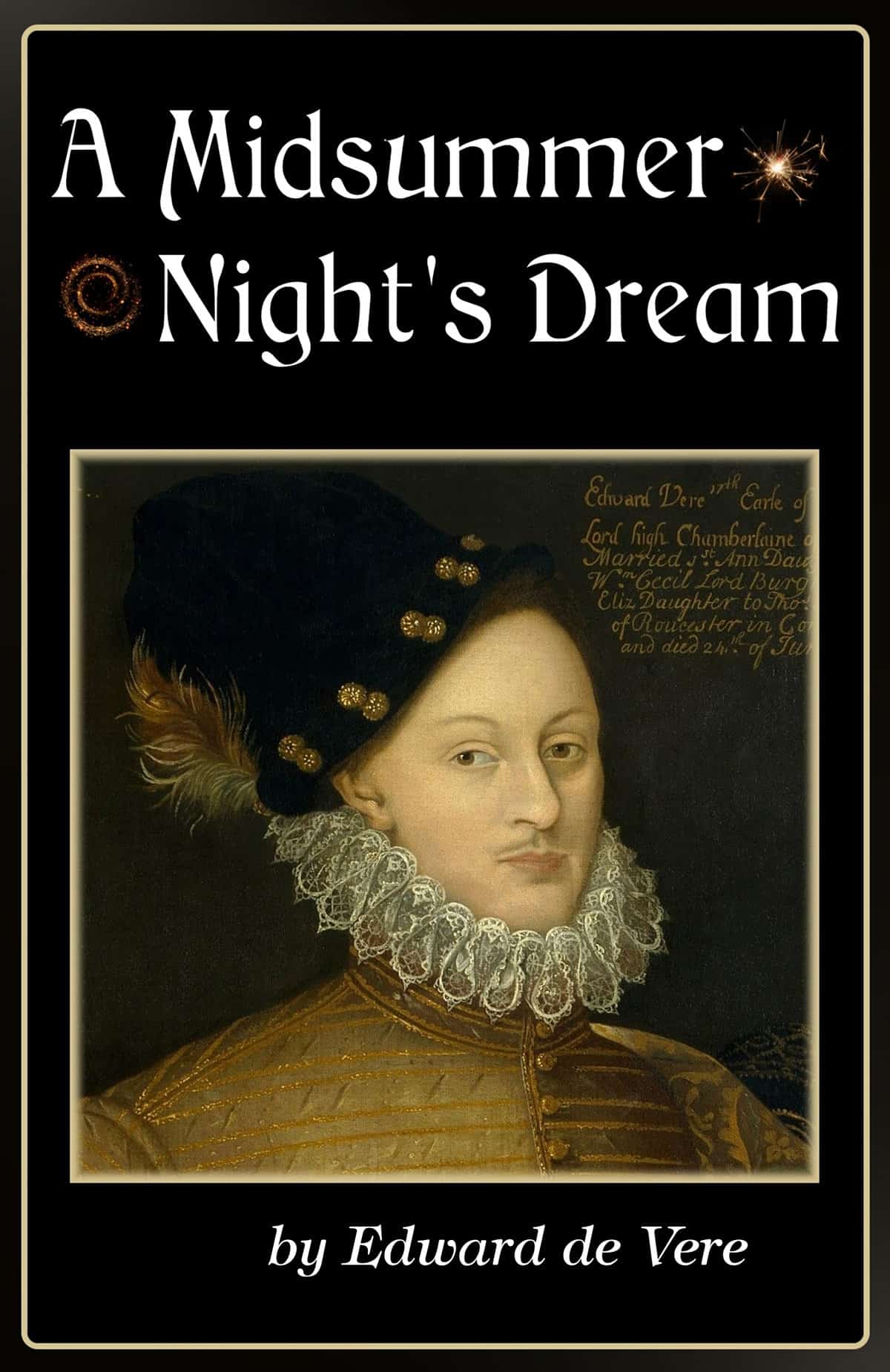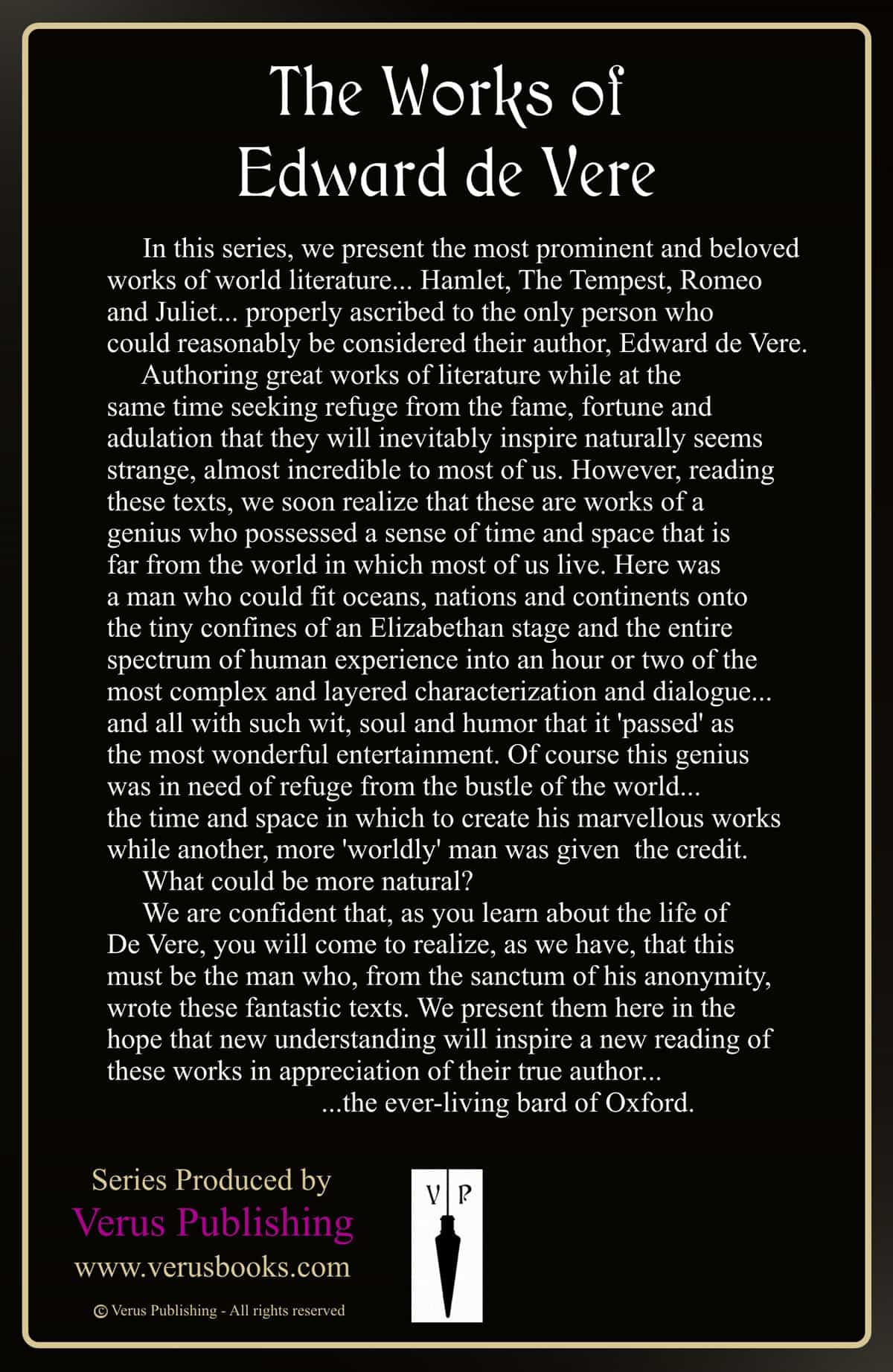by Bryan H. Wildenthal
 A new independent publisher has been issuing handsome editions of Shakespearean plays and poems. But the name “Shakespeare” appears nowhere on their covers or title pages (endnotes mention it discreetly). Instead, they are presented — simply, radically, and refreshingly — as “The Works of Edward de Vere.” De Vere, 17th Earl of Oxford, has been the leading alternative Shakespeare authorship candidate for more than a century now.
A new independent publisher has been issuing handsome editions of Shakespearean plays and poems. But the name “Shakespeare” appears nowhere on their covers or title pages (endnotes mention it discreetly). Instead, they are presented — simply, radically, and refreshingly — as “The Works of Edward de Vere.” De Vere, 17th Earl of Oxford, has been the leading alternative Shakespeare authorship candidate for more than a century now.
Verus Publishing, the producer of these new editions, was launched in 2019 and is not affiliated with the Shakespeare Oxford Fellowship (SOF), the De Vere Society (DVS), or any other authorship organization. The Verus editions came to the attention of SOF members in 2020. The 15 volumes available so far (14 plays, plus a collection of the Sonnets and narrative poems, each in hardcover, paperback, and ebook form) may be purchased here on the Verus website (also available on Amazon.com).
The SOF has established a friendly dialogue with Verus’s managing editor, Mark Aman, and co-editor Georgette Fehrenbach. The Verus editions generously credit the work of the SOF and the DVS, directing readers to the websites of both organizations. Each edition includes a concise biography of Edward de Vere (Oxford) written by DVS President Kevin Gilvary, and a list of recommended readings including books by Charlton Ogburn, Mark Anderson, William Farina, Hank Whittemore — and of course the founding work of Oxfordian scholarship by J. Thomas Looney.
A companion article on the SOF website discusses the separate Oxfordian Shakespeare Series. Richard F. Whalen, Professor Emeritus Ren Draya, and Professor Michael Delahoyde have published scholarly Oxfordian editions of four plays in that series.
Aman praises the Oxfordian series, noting it is “exactly the kind of work that moved us to create our series.” He hails the editions by Whalen, Draya, and Delahoyde as “valuable resources that make and prove the fascinating case for Edward de Vere’s authorship.” But he explains that the Verus series is quite different. The Verus books do not try to duplicate the scholarly commentary or critical apparatus of the Oxfordian series. They are designed simply as reading editions with no explanatory footnotes or annotations. Thus, readers may wish to have a dictionary or web browser handy, or a scholarly edition, to clarify archaic words and obscure references. The textual source used by Verus is the “Moby” Shakespeare posted on the internet by the Massachusetts Institute of Technology (MIT) since 1993. “Moby” is a public domain version of Shakespeare, available on various sites, based on the Cambridge (Globe) editions published in 1863–66.

Aman describes Verus’s goal as “to clearly and unapologetically declare Edward de Vere the author of the works.” Verus intentionally avoids the name “Shakespeare” as much as possible, “so that there can be no confusion as to who the author is. We truly feel there is far less confusion generated by naming Edward de Vere as the sole author than by ascribing two names, especially when one of those names (or a close facsimile) was owned by an historical personage who was a contemporary of de Vere, an actor on the very stage on which the plays were performed, and whose myth of authorship is supported by a long-standing academic and cultural tradition.”
Aman concedes that “this rather radical approach” may create some challenges in marketing the books. But he hopes it will “pique the interest of those who are not familiar with the authorship question. What? Hamlet by Edward de Vere? What’s this about?”
SOF President John Hamill mentioned and displayed the Verus books during the recent Shakespeare Authorship Symposium (October 2, 2020, on YouTube, at 1:46–48). Aman, educated as a clinical psychologist, is himself the author of a philosophical work on the origins and nature of humanity, The Idea of Man: Concepts of Human Ontology (also available on the Verus website).


